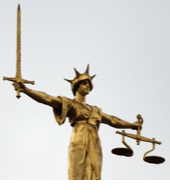
The DfE has stated a need “to create and enforce a clear and rigorous expectation on all schools to promote the fundamental British values of democracy, the rule of law, individual liberty and mutual respect and tolerance of those with different faiths and beliefs.”
Citizens of the UK are encouraged to:
- Respect and obey the law
- Respect the rights of others, including their right to their own opinions
- Treat others with fairness
- Look after yourself and your family
- Look after the area in which you live and the environment
At Roydon Primary School we believe the school aims, together with a focus on the Index for Inclusion, fully support these fundamental British Values, that are promoted through our enriching curriculum and extra-curricular activities. We are committed to promoting these in the following ways:

Democracy
One of the fundamental values at Roydon is the right of all members of the community to be heard and the responsibility of others to allow this to happen. This is taught and reinforced through all lessons, teaching and modelling to children and young people, how to make their needs and wishes heard in a way that society and school life finds acceptable.
Pupils have the opportunity to have their voices heard through our School Council and pupil questionnaires. The elections of class representatives for the School Council are based solely on pupil votes. The School Council meets regularly and takes part in decision making on a range of topics. These topics are also discussed within classes, so that all pupils have an input in decision making.
Pupils from Year 5 and 6 have participated in Local Democracy Day, when a drama group employed by South Norfolk Council introduced democracy and how the vote was won.
At the time of a general election, pupils in the Year 6/5 classes participate in a mock election, forming parties, writing manifestos and campaigning for votes among the other members of the school community.
Pupils are also aware of the role of the Royal Family within Britain, and participate in celebrations when there are significant royal events. For example, for the Queen’s 90th birthday, the school attended a tree planting ceremony on the village green that had been organised by the Parish Council, and then participated in a street party style lunch at school. Our school behaviour policy involves rewards to which the pupils have contributed.
The Rule of Law

All staff members have high expectations of the children in our school. The importance of laws and rules are consistently reinforced in the classroom, as well as through school assemblies. Pupils are taught to understand the need for laws – that they are there for individual protection, the responsibilities that this involves and the consequences when laws are broken.
Within class, pupils may generate their own set of rules so that there is a common understanding of what is important in order for the class to be an orderly place to work. Pupils follow a positive behaviour policy and clearly understand the rewards and sanctions that are used. Assemblies and discussions in class focus on recognising right from wrong and visits from the Police and Fire Service help to reinforce these messages.
The children in Years 5 and 6 discuss moral issues relating to their topic, and this enables them to develop their understanding of the rules of the law. Each year, pupils from Year 6 attend the Crucial Crew event in Norfolk, meeting representatives from a range of organisations. Police Inspector Huddlestone speaks to Year 5 and 6 pupils every 2 years about the dangers of drugs, and the children are given a demonstration of the work of police dogs.
Individual Liberty

Pupils are encouraged to be independent learners, constantly making choices, within a safe and supportive environment. Developing their self-esteem and self-confidence is very important. Pupils are encouraged to understand their personal freedoms and are taught how to use these rights to best effect. All pupils are keen to support charities, whether local, national or global. This may be through a non-uniform day, weekly collections for a village in India, collections at the Christmas performances or Business Day that Year 6 organise each year. They are taught consideration for others through our Religious Education curriculum and a termly focus on one of the values promoted by the Index for Inclusion. e-safety lessons and assemblies enable the children to make choices in a safe manner.
Pupils learn about times in history when individual liberty has been challenged or compromised such as during the First and Second World Wars, and they remember those who have given their lives to maintain our freedom.
Mutual Respect

At Roydon, our values of respect and tolerance permeate all areas of school life. This engenders a climate within which pupils feel safe and secure and facilitates the fulfilment of potential. All staff demonstrate respect to everyone with whom they come into contact. They consistently model and promote the behaviours and attitudes that are the foundation of positive relationships. The strong school ethos encourages everyone to consider and support each other and to celebrate the worth and individuality of every member of the school community. Discussions in class and during whole school assemblies as well as issues that are promoted during collective worship, allow the children to show respect and reverence to all other individuals.
Tolerance of those of Different Faiths and Beliefs

Pupils are reminded of their place in a culturally diverse society through our Religious Education curriculum and the spiritual life of the school. Assemblies and class work promote the diversity of society and the right for each person to be respected and valued equally regardless of ability, gender, faith, heritage or race. Visitors are invited to school to share their knowledge of different faith communities and enhance learning within assemblies and in class. Other cultures are studied through topic work throughout the school, including occasional special events such as a multi-cultural week.
